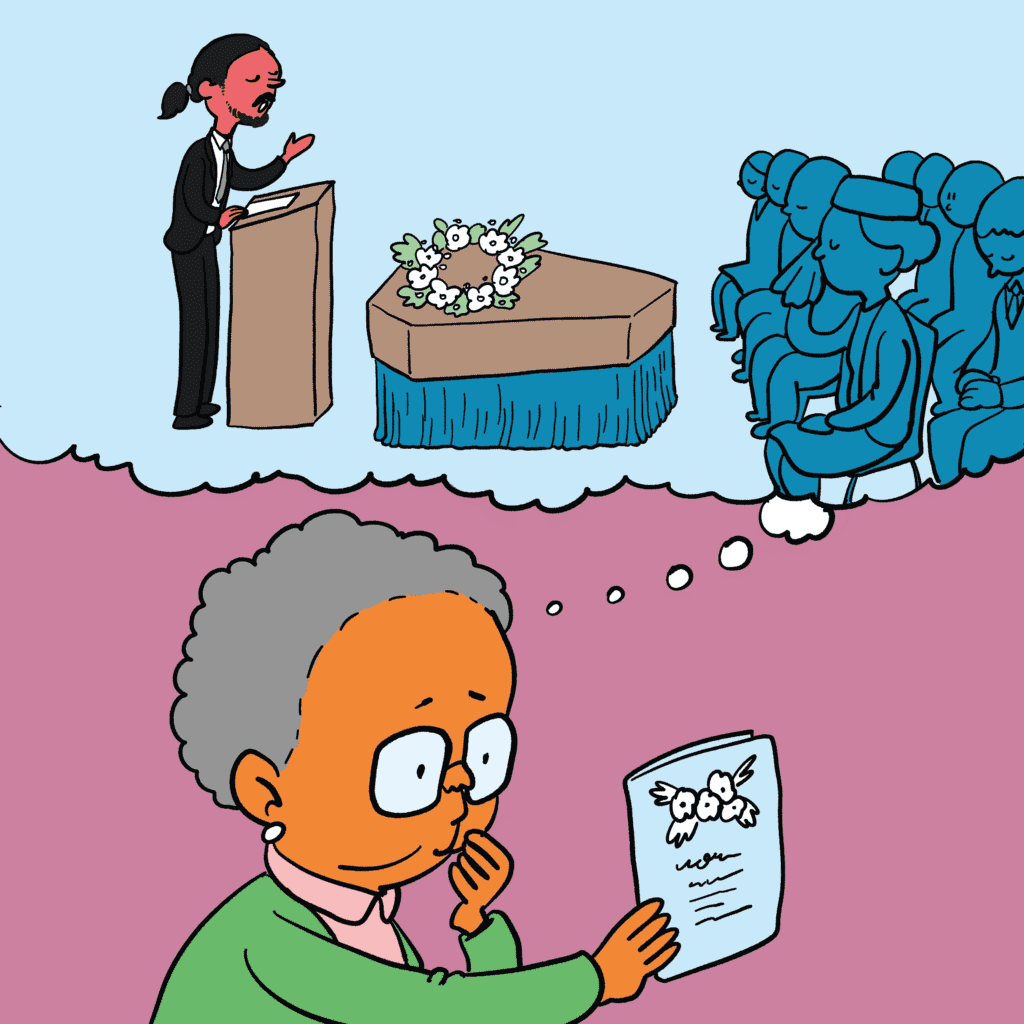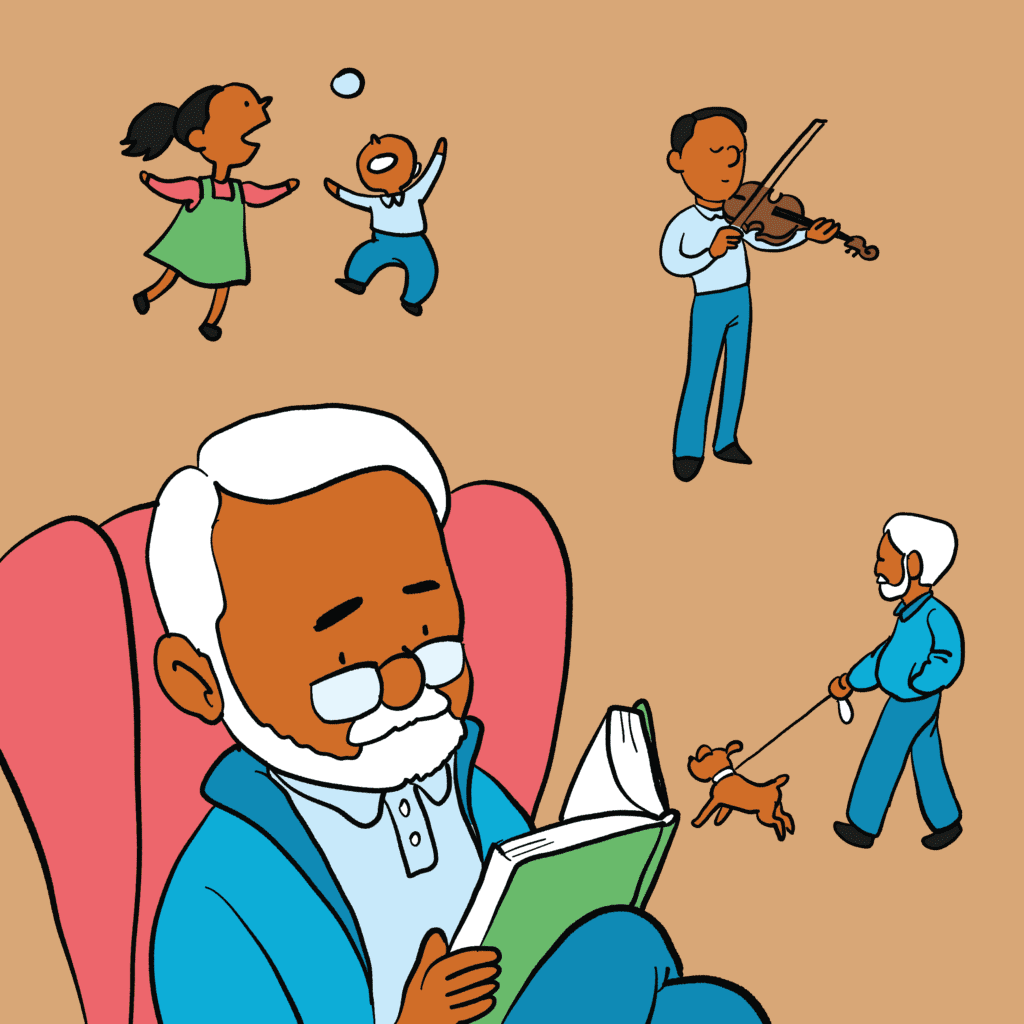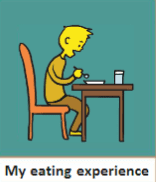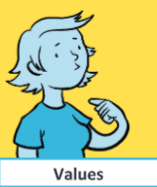Licenced Trainer and co-developer of the Funeral Planning Resource, Gillian Robertson is running Talking Mats Foundaion Training with specific sessions relating to the Resource. To reflect the working hours that practitioners interested in this may we are offering these sessions outside the 9am-5pm ‘norm’.
- Live video link (Teams) over 4 sessions, from 7pm until 8.30pm. 16th October, 23rd October, 13th November and 4th December (all sessions must be attended). 16 places available
- Face to face training at our headquarters in Stirling. 2 half day sessions, 7th February 2024 and 6th March 2024 (both sessions must be attended). 8 places available.
Gillian Robertson, an Interfaith Celebrant with a background in Special Education, instigated and drove this project with funding from the Big Lottery Awards for All. In a previous blog she describes her motivation and the early stages of the project.
Here’s a bit more information on the topics and who might use them.



Funeral planning – this topic supports the initial conversation in planning a funeral leading to decisions about what someone would or would not like. It is particularly useful when planning for the future but can also be used by a celebrant / religious leader or funeral director to discuss what the family want for their loved one after a death has occurred.
Funeral Service – this topic supports the conversation which would follow on from Funeral Planning, leading to decisions about what someone would like or not like for the actual funeral service. Recording the first mat on this topic is a useful tool to refer to as plans progress. Who carries out this conversation depends on the context it is being used in. For example, if planning the service of a family member who has recently died then this is a very helpful resource for the celebrant or religious leader.
Eulogy – This topic supports conversations which highlight the important themes that someone would want included in their Eulogy. It is most useful when planning a service for someone who has recently died and relevant for the celebrant / religious leader to carry out when planning the service. The testing phase also highlighted that this topic can be used as part of the grieving process in a reflective way to help someone with learning disabilities remember the person who has died.
At the close of the project, with the testing phases completed, Gillian reflected and summed up the importance of this resource beyond the planning of funerals.
“The values behind Talking Mats are about making sure that everyone has a voice. If we deny people the ability to be heard, we deny them their human rights. When people’s voices are heard, improvements in their lives can be made.”
Foundation Training based on the resource is now available to book. There is a 20% discount if you attended the launch seminar and have the code to use at the shop checkout.
Kim Stringer, Director of the Charity Vegetarian for Life, describes her thinking behind this new resource and asks for volunteers to help test it out.
I first had a Talking Mat conversation at the Alzheimer Scotland conference in 2019 and was struck by the way a picture of my likes and dislikes emerged. I wouldn’t have collected all these ideas together in a spoken conversation and I immediately thought this would be a great tool to use to explore an issue that Vegetarian for Life was becoming increasingly aware of.
We support older vegans and vegetarians, and those who care for them, and we had been hearing about some vegetarians with dementia who were asking for meat. It seemed unlikely to us that people who had chosen to be vegan or vegetarian because of their beliefs would suddenly reconsider these views. Staff and families were facing a dilemma and I thought Talking Mats would be a great tool to explore food preferences and perhaps help to find out if a person was genuinely asking for meat.
After initial conversations with Talking Mats we had a seminar to gather other team members’ thoughts, and we began to create the resource. We decided what topics we wanted to cover, how these could be grouped, and what top scales would work.
Dietary Choice

Not all vegetarians like to eat vegetables or meat replacement products and this topic is designed to allow people to express their food preferences. Meat and fish options are included in this topic to help get a reliable picture of a person’s beliefs. When considered along with the conversation arising from the Values topic this gives the opportunity to get a fuller understanding of someone’s motivations. Suggested top scale to use:
Want to eat / sometimes want to eat / don’t want to eat
My eating experience

This topic helps explore if someone is happy with their current situation. Some of the symbols cover general subjects, while others are more specifically vegetarian- or vegan-focused. We included things such as celebrations and events. Vegetarians and vegans will want to enjoy these too but may feel excluded if offered something like a salad while others eat burgers. Suggested top scale to use:
Happy / so-so / not happy
Values. Lifestyle

People adopt vegetarian or vegan diets for different reasons and these topics address the reasons behind this choice, and consider the wider lifestyle implications, not just diet. For example someone following a plant-based diet for health reasons may feel differently about toiletries and cleaning products which may have been tested on animals than someone for whom veganism is a philosophical belief. These topics help build a picture of the reasons behind the lifestyle preferences. Suggested top scales to use:
Values: very important / quite important / not important
Lifestyle: want / don’t mind / don’t want
We hope that the conversations generated by the mats will allow care providers to get to better know the person who is receiving care. They may also foster a greater understanding of vegetarianism and veganism.
For more information about good practice when catering for vegetarians and vegans living with dementia, please see Vegetarian for Life’s Memory Care Pledge.
This resource is now in the testing phase and we are looking for volunteers. If you think you can use the resource at least twice between now and the 17th of March please email info@talkingmats.com describing the setting(s) and clients you might use the resource with. We require up to 6 people for this phase.
 Online training login
Online training login 



